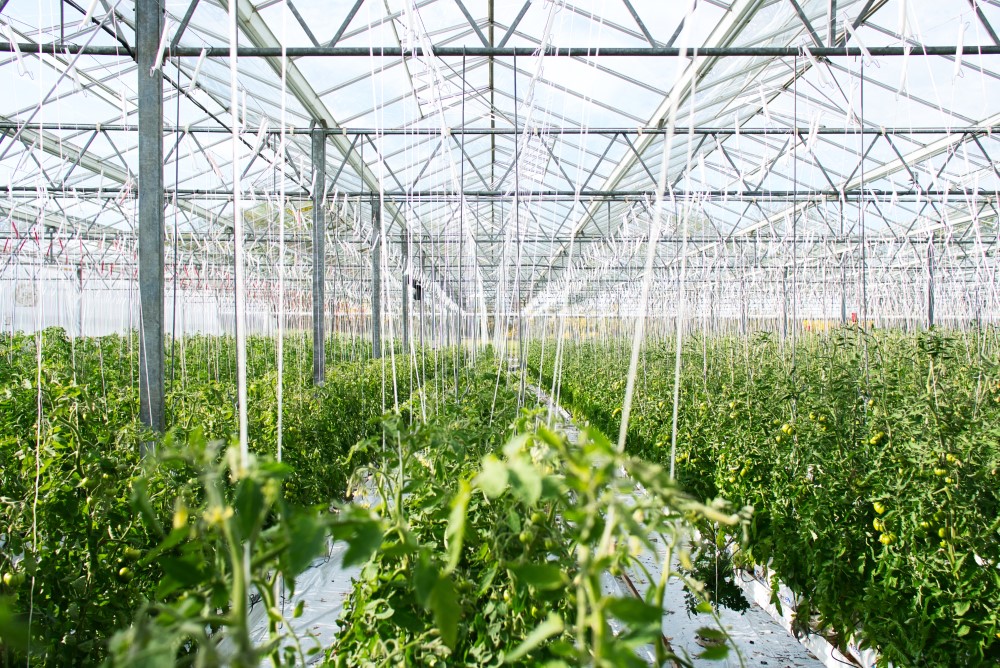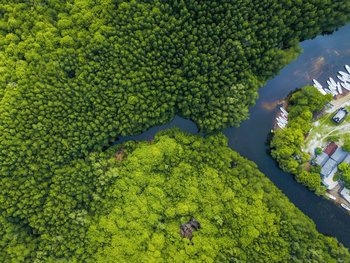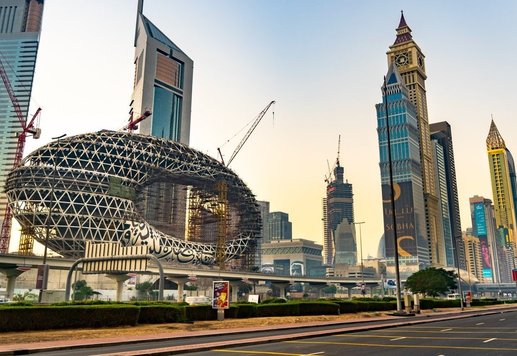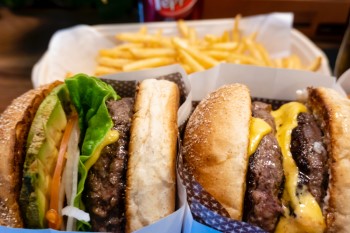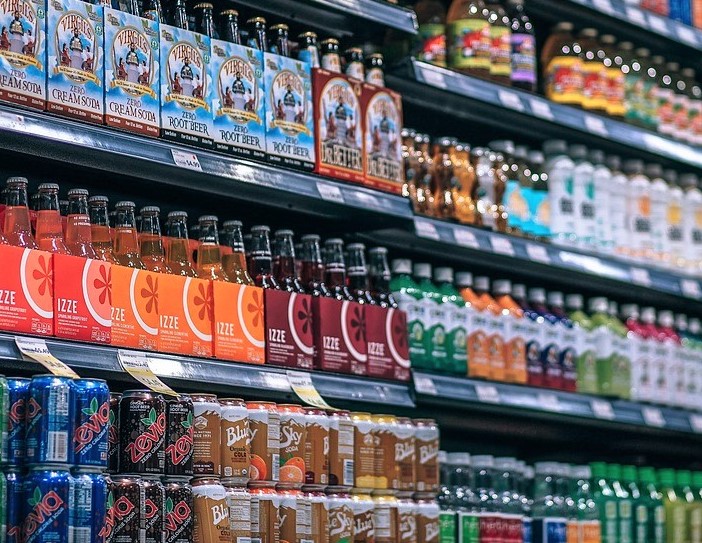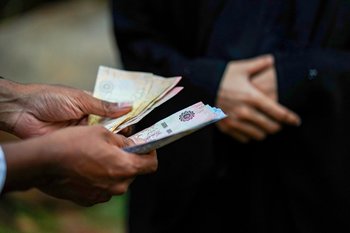The opportunities and challenges of addressing food shortages in the region
- Technology in the farming sector is emerging as a potential solution to the region's worrying dependence on food imports
- Despite its strong potential, issues including its energy-intensive practices, high startup costs, and limitations in terms of produce are key obstacles to its development
Gulf Cooperation Council (GCC) countries face serious food security challenges ‒ only 1.7% of all land is arable and renewable freshwater resources are limited. These limitations, combined with a rising population and subsequent demand for food, make it necessary for GCC countries to import 80-90% of food supplies.
By 2020, an astronomical $53.1 billion is expected to be spent on food imports.
The region’s high dependence on food imports puts it at the mercy of price and supply risks, which have become more volatile with rising instability in the region since 2011 and fluctuating oil prices. The gravity of the situation drove the United Arab Emirates to appoint a Minister of State for Food Security, a regional first likely to be emulated by other GCC and Arab countries.
Technology-driven transformation in the farming sector is emerging as a potential solution. Vertical farming, in particular, has the potential to supply large amounts of produce to the region while requiring significantly less land and water than traditional farming methods. Vertical farming is the practice of growing fruits, vegetables, and other produce in vertically-stacked tiers using artificial light sources.
Aerofarms, one of the companies emerging as a leader in the GCC vertical farming push, claims its farms operate using 95% less water than open-field farms and produce 75 times more food per square foot.
In several countries, vertical farms can also attain organic certification, offering opportunities for farmers to charge premium prices. Because they do not take up as much land, vertical farms can also be located closer to distribution centers, reducing the cost of transporting output from farm to store and enabling small-scale producers to participate in agricultural value chains.
Despite the benefits, vertical farming faces some limitations. Vertical farms require artificial sources of light, which are typically energy-intensive and add an additional cost not required in traditional farming. While many GCC countries are in the process of reducing utility and fuel subsidies, the uncertain economics of power generation is a potential barrier to investment. The initial cost of setting up a vertical farm can also be significantly higher than that of a traditional farm, due to more complex and expensive infrastructure, lighting, and water systems.
Another challenge facing vertical farms is that hydroponic systems limit the types of produce that can be grown to leafy greens, excluding plants such as corn, wheat, and root vegetables. At present, 80% of crops grown by vertical farms are either lettuce, spinach, broccoli, cucumbers, or peppers.
Globally, the vertical farming market is set to grow to $6.4 billion by 2023 at a CAGR of 24%.
The market’s projected growth and its potential to mitigate GCC food security challenges have begun to attract the attention of regional investors, such as Dubai-based AgriSecura and Meraas, as well as international funders, such as SoftBank. A number of firms have already established themselves as key players in the GCC vertical farming sector, including US-based AeroFarms and Plenty.
AeroFarms currently runs the largest vertical farm in the world, a 70,000-square-foot factory in New Jersey. Last year, the firm closed a $34 million Series D round backed by investment vehicle Meraas to fund regional expansion.
AeroFarms had previously partnered with Adawat International and Sheikh Saleh Bugshan to build an aeroponic facility in Jeddah and was said to be considering operations in Qatar. Silicon Valley-based Plenty, which is backed by Amazon founder, Jeff Bezos, meanwhile, raised $226 million in funding, $200 million of which came through a Series B funding round led by SoftBank’s Vision Fund which is backed by Saudi Arabia’s Public Investment Fund and the UAE’s Mubadala. Plenty recently announced that it is planning to start operations in Abu Dhabi and Dubai in early 2019 and is also exploring a facility in Saudi Arabia. Pure Harvest, which held a launch event for the first harvest produced by its high-tech greenhouse in November 2018, is also a potential player in the vertical farming sector.
Dubai, in particular, is emerging as a first-mover in vertical farming.
Based on the early traction of AeroFarms and Plenty, several other firms have begun to eye the GCC vertical farming market. Earlier this year, US-based Crop One Holdings announced a partnership with Emirates Airlines to create the largest vertical farm in the world, located in Dubai. Emirates Group Chairman Sheikh Ahmed bin Saeed Al Maktoum said at the time that the agreement “aligns with the UAE’s drive for more agricultural self-sufficiency,” as well as Dubai’s aim of becoming a global innovation hub. Last year, UAE-based Badia Farms opened the first commercial vertical indoor farm in the GCC, located in Dubai. Badia Farms founder Omar Al Jundi told press at that time that the firm is aiming to change how the UAE obtains its produce, growing food that can be “delivered from farm to table within hours.”
Following these moves, the UAE Ministry of Climate Change and Environment signed a five-year deal with Dubai-based Shalimar Biotech Industries to build 12 vertical farms in Dubai. A ministry spokesperson noted at the time that the deal aims to "encourage innovation in agriculture,” with the goal of “enhancing the UAE’s food security and diversity.” This deal demonstrates the increasing interest of GCC governments in vertical farming as a solution for regional food security challenges and will likely be followed closely by other governments.
In the GCC, major grocery chains are also in a prime position to adopt vertical farming technology by growing produce in facilities close to stores or installing miniature facilities on store premises.
By using vertical farming, grocery chains could cut down considerably on the costs and waste related to importing, transporting, and distributing produce. Globally, retail chains such as US-based Target and German-based EDEKA, have already begun working on vertical farming projects. However, GCC retailers have not yet entered the vertical farming market, despite the interest of private investors, governments, sovereign wealth funds, and semi-government firms in developing the sector. Regional chains like Carrefour, Spinneys, and LuLu seem especially well-placed to implement vertical farming pilots due to supermarket consolidation in the GCC.
As GCC governments work to reduce the region’s reliance on food imports, vertical farming is becoming an increasingly appealing alternative.
Among other benefits, a strong vertical farming sector could enable the GCC to prevent rising food prices and sidestep the geopolitical issues that plague overseas farmland investments. However, while the market shows significant growth potential, its success will rely on sufficient support from governments, investors, and private sector firms, such as supermarkets. These actors are likely to move quickly into the vertical farming sector, both for their own bottom lines as well as for the future of food security in the GCC region.















